William Cullen Bryant
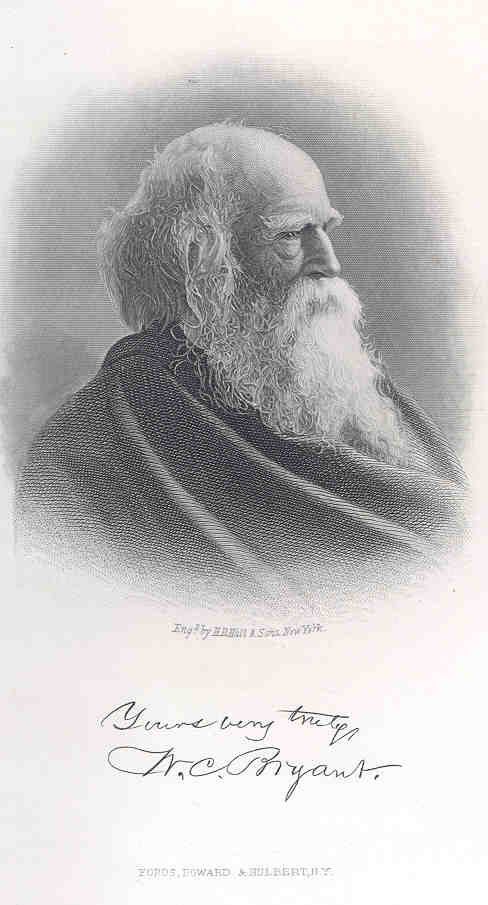
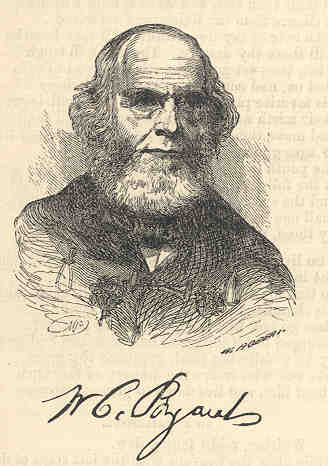
Evert A. & George L. Duyckinck, The Cyclopaedia of American Literature 901
(Philadelphia: William Rutter & Co., 1880)(Vol. 1)
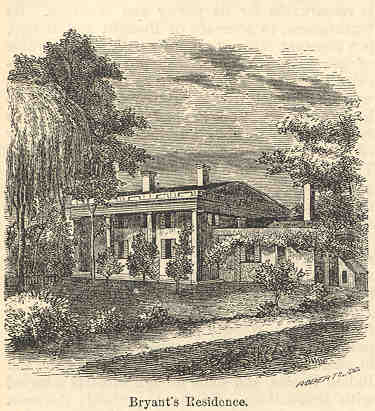
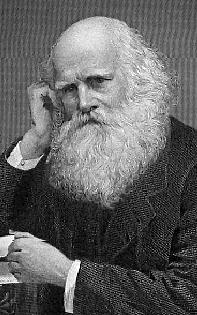
Engraving
used with permission of the
Bryant Library, Rosyln, New York
[Thanatopsis; To a Waterfowl; To the Fringed Gentian; June; A Forest Hymn; Consumption; The Death of the Flowers; The Death of Lincoln; The Strange Lady; The Skies; October; November; The Gladness of Nature; After a Tempest; Summer Wind; The Constellations; The Yellow Violet; Inscription for the Entrance to a Wood; Mutation; Hymn of the City — online text]
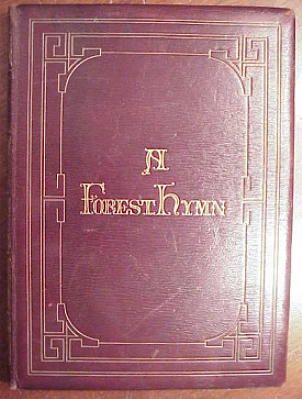
[The Poet] [A Poet to His Wife] [Thanatopsis] [To a Waterfowl] [The Return of the Birds] [To the Fringed Gentian] [June] [November] [My Autumn Walk] [My Autumn Walk] [A Forest Hymn] [Among the Trees] [The May Sun Sheds an Amber Light] [The Past] [The Future Life] [The Death of the Flowers] [The Yellow Violet] [Castles in the Air] [The Planting of the Apple-Tree] [The Planting of the Apple-Tree] [Ode] [The Death of Slavery] [The Death of Slavery] [Dante] [America] [The Antiquity of Freedom] [The Battle-Field] [The Battle-Field] [The Battle Field] [The Conqueror's Grave] [The Old Man's Counsel] [The Tides] [The Skies] [The Winds] [Hymn to the North Star] [The Conjunction of Jupiter and Venus] [Song of the Stars] The Flood of Years] [An Incident at Sorrento] [The Snow-Shower] [Song of Marion's Men] [The Crowded Street] [O Fairest of the Rural Maids] [Song for a New-Year's Eve] [A Dream] [A Dream] [The Fountain] [The Prairies] [The Hunter of the Prairies] [The Rivulet] [Earth's Children Cleave to Earth] ["Oh Mother of a Mighty Race"] [The Future Life] [The Past] [Caterskill Falls] [Monument Mountain] [The Hunter's Vision] [The Evening Wind] [An Indian at the Burial-Place of His Fathers] [The Flood of Years] [The Descent of Neptune to aid the Greeks] [The Flight of the Diomed] [The Death of Schiller] [To Cole, The Painter Departing for Europe] [The Two Travelers] [From "An Evening Revery"] [A Night Scene] [William Leggett] [On a Person Called Friar Lubin] [The Parting of Hector and Andromache] [The Contention between Achilles and Agamemnon] [Assault of Antinous upon Ulysses] [In Memory of John Lothrop Motley] [The Arctic Lover] [The Murdered Traveller] [Mutation]
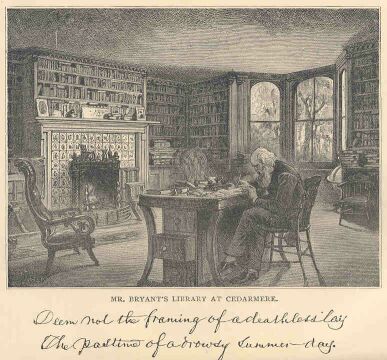
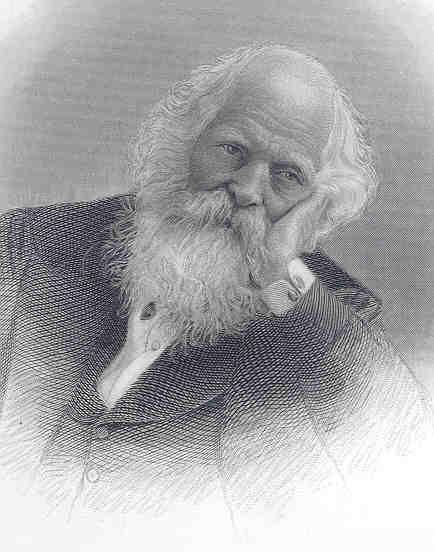
Rufus Wilmot Griswold, The Poets and Poetry of America
(New York: James Miller, Publisher, 1872)
Research Resources
University of Virginia
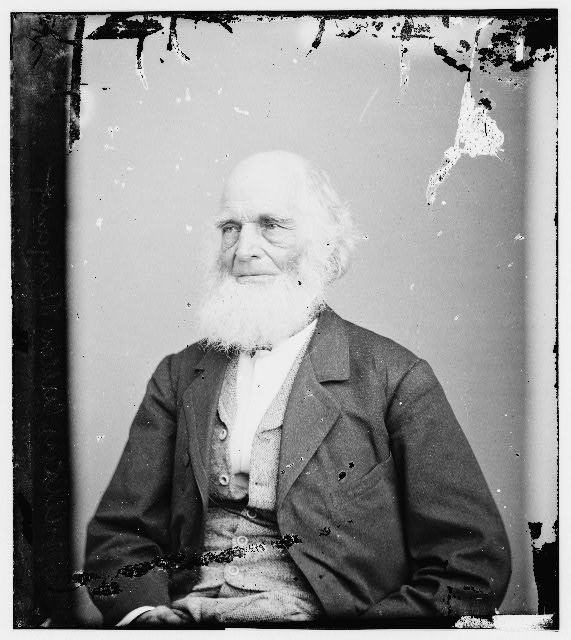
Brady-Handy Photograph Collection
Library of Congress Prints and Photographs Division Washington, D.C.

